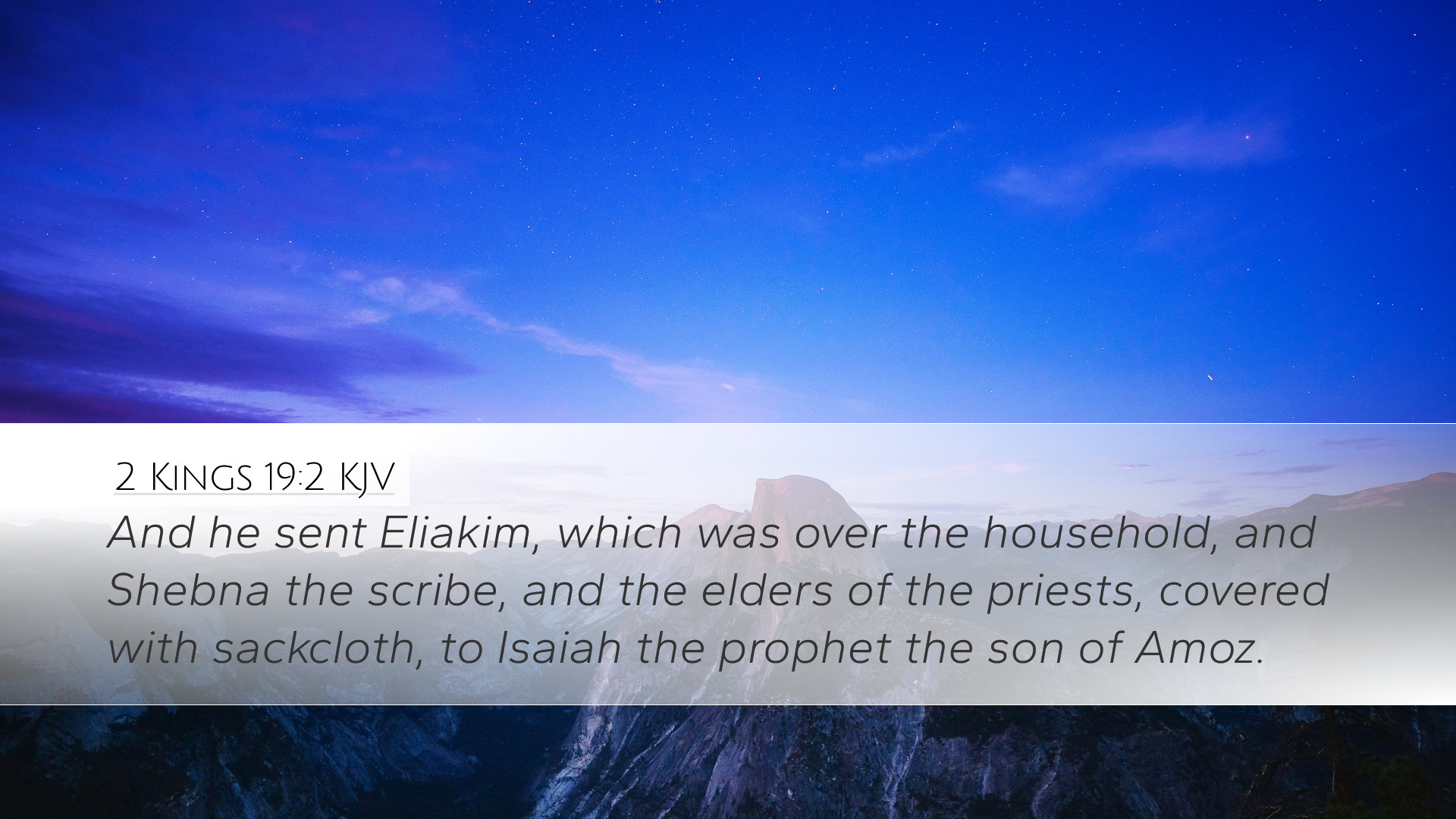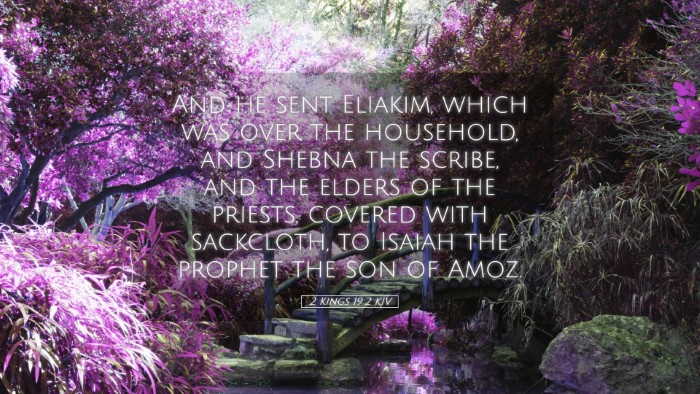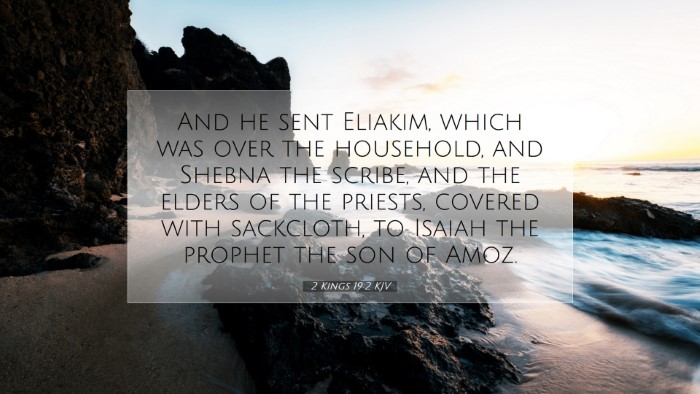Commentary on 2 Kings 19:2
Verse Reference: 2 Kings 19:2 - “And he sent Eliakim, which was over the household, and Shebna the scribe, and the elders of the priests, covered with sackcloth, to Isaiah the prophet, the son of Amoz.”
Contextual Background
In the historical narrative of 2 Kings, we find Israel in a tumultuous state, under siege from the Assyrian Empire, particularly during the reign of King Hezekiah. This verse occurs in a critical juncture where the king, deeply troubled by the threats posed by Sennacherib, seeks divine guidance through the prophet Isaiah. The act of sending officials in sackcloth is emblematic of mourning and repentance, signaling the gravity of the situation.
Analysis and Insights
Significance of the Envoys
According to Matthew Henry, the choice of envoys—Eliakim, Shebna, and the elders—reflects the seriousness with which King Hezekiah approached his predicament. Henry emphasizes that these representatives embodied the king’s concern not only for the physical threat but also for the spiritual state of the nation. They were entrusted with the responsibility to convey the people’s distress to the prophet of God.
Covered with Sackcloth
The act of wearing sackcloth, as noted by Albert Barnes, symbolized desperation and earnestness in seeking mercy from God. It was a physical manifestation of the king’s and the people's humility and recognition of their need for divine intervention. This visual cue indicates a community that is not only seeking help but is also aware of its shortcomings and need for repentance.
Role of Isaiah the Prophet
Adam Clarke provides insight into the role of Isaiah in this narrative. He highlights Isaiah’s unique position as a mouthpiece of God during Israel’s crises. Clarke notes that Hezekiah's decision to consult Isaiah rather than resorting to foreign alliances demonstrates his faith in God’s sovereignty and power. It underscores the importance of prophetic guidance in understanding God's will amidst national turmoil.
Theological Implications
This passage illustrates key theological themes relevant to contemporary readers, particularly those involved in ministry and scholarship. The responsive leadership of Hezekiah serves as a case study in the importance of seeking God through prayer and prophetic counsel during desperate times.
- The Nature of God’s People: The act of coming together in repentance highlights the necessity of communal acknowledgment of sin and seeking God’s mercy.
- Divine Sovereignty: Hezekiah’s reliance on prophetic guidance reinforces the belief that God is ultimately in control of world affairs, even in dire circumstances.
- Leadership in Crisis: Hezekiah exemplifies a leader who prioritizes spiritual integrity and seeks God’s direction over political maneuvers.
Practical Applications
For pastors and theologians, 2 Kings 19:2 serves as a profound reminder that in times of crisis, both personal and communal, the first step should be turning towards God in humility. It challenges modern leaders to evaluate their reliance on human solutions and instead pursue divine wisdom.
Additionally, this passage emphasizes the significance of prophetic voices in the church today. Spiritual leaders are encouraged to cultivate relationships with those who can provide godly counsel and guidance, echoing the reliance on God’s messengers as seen in this narrative.
Conclusion
In summary, 2 Kings 19:2 not only recounts a historical event but also calls readers to reflect on their posture before God during crises. The insights from public domain commentaries enhance our understanding of the complexities involved in this moment, inviting deeper theological reflection and practical application for today's followers of Christ.


